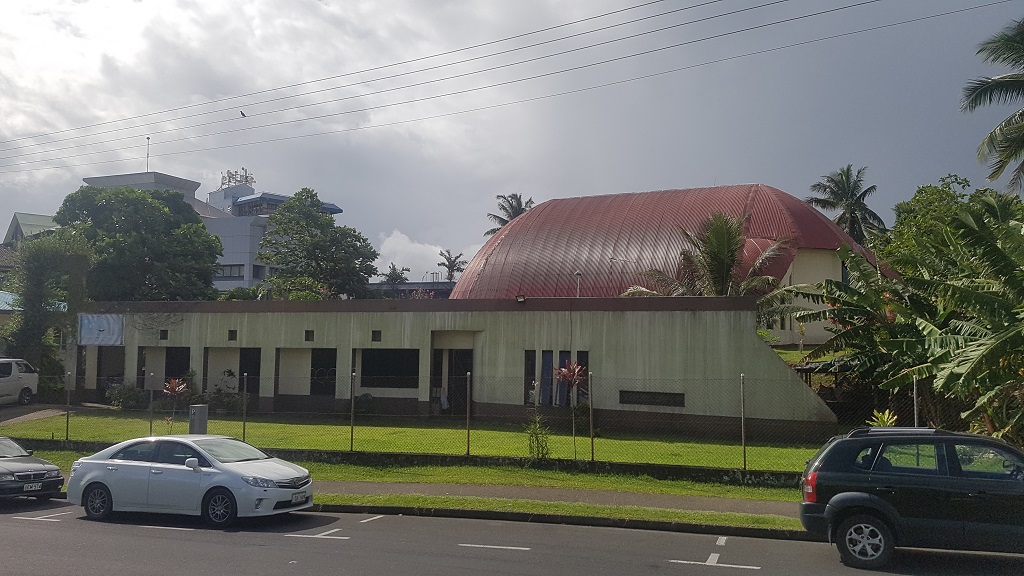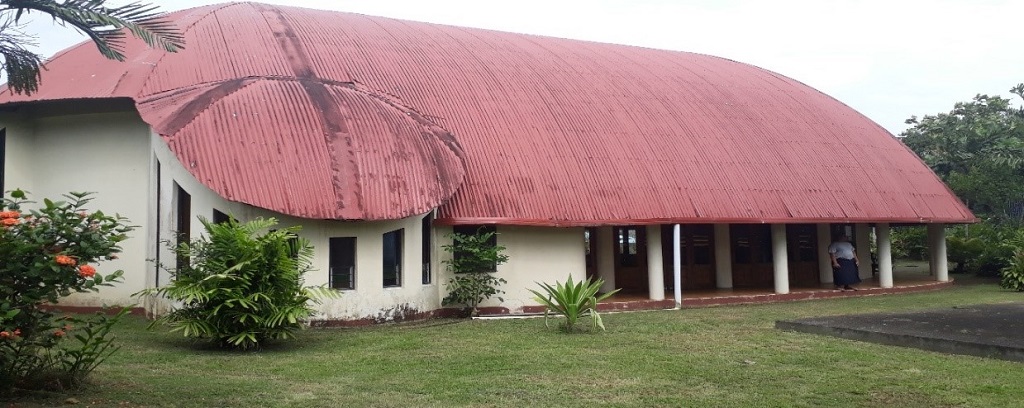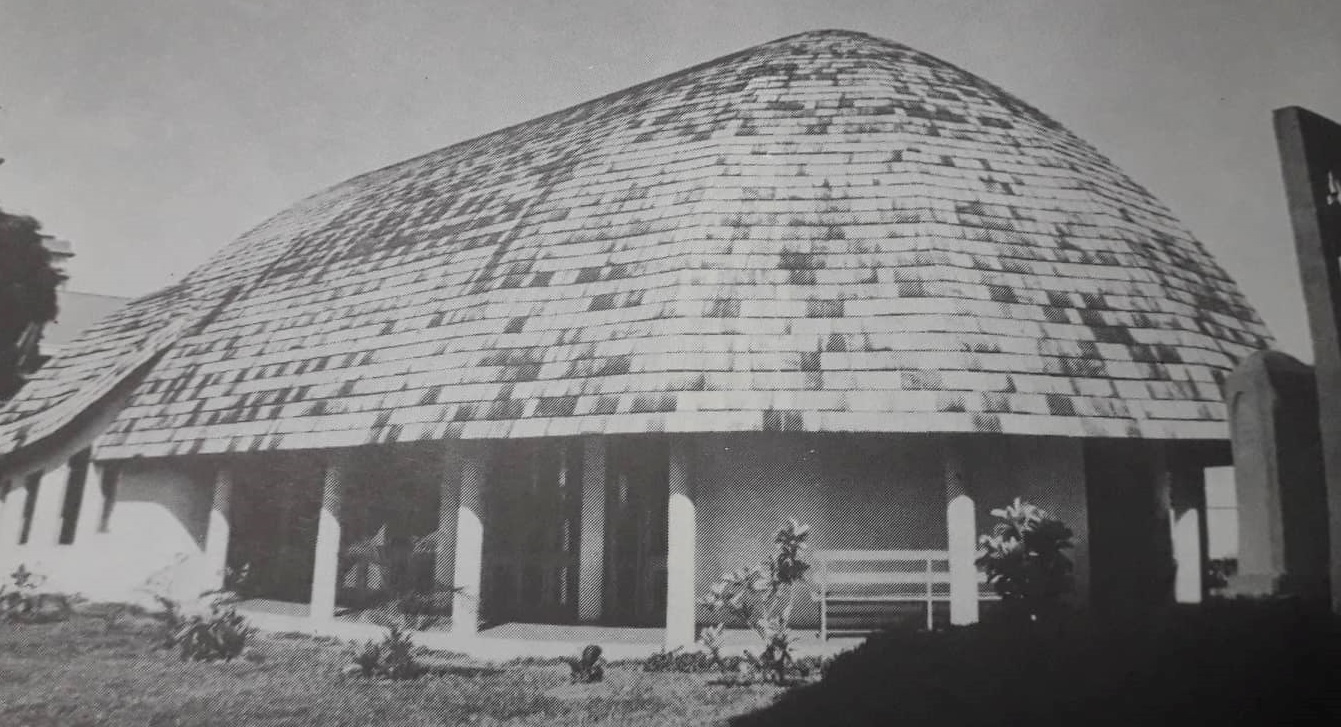Samoan Congregational Church
The Samoan Congregational Church was constructed in 1988 and offers religious and pastoral support to the Samoan community in Fiji, including many Samoan students who come to Fiji to study at USP. Originally established by the London Missionary Society (LMS), the Samoan Congregational Church today is known by Samoans as the Ekalesia Fa’apotpotoga Kerisiano i Samoa (EFKS). The church has played an important role in safeguarding the ethos of fa’a Samoa in Fiji, symbolized by its motto e lele le toloa, ae maau ile vai (meaning “the Toloa water-bird flies away yet always goes back to the water”.)
Last updated on 06 Jun 2025
Narrated by Karabinoata Bikarere



Timeline
1890s-1900s
Samoans first migrated and settled in Levuka. Some came to work on sugar cane plantations and other industries as part of the labour trade, while others came to Fiji through family connections. They set up Lotu Samoa (Protestant Church) for worshipping and Tufue became the first faife’au (pastor).
1903
On January 10, a 3¼ acre plot was bought by seven Samoan pastors (Alama, Esene, Moli, Uili, Levi, Sa’aga and Otinielu) in Naiqaqi for its mission outpost in Fiji. Naiqaqi was the name of the area, deriving from the sound of the cane crusher because the land was used by the sugar mill industry before the church was built. The church moved from Levuka to Thurston Street and the land was bought under the guidance/protection of the LMS for 250 pounds.
1904
On February 11 the papers were registered under the names of John Marriot and John Hills, chairman and secretary of the LMS with the Fiji Registrar of Land and Titles. The Samoan Congregational Church was built having Kuresa as its first faife’au. He organised fundraising for the church for almost 20 years.
1910
Kuresa’s successor Poloie built the first mission house and took care of the church, then later came Avao.
1920s
Talimatasi Sanerive (3rd minister) expanded the mission to Samoans in Lautoka. Sanerive’s mission was prosperous (known for being a successful fundraiser for the church) but later caused friction within the congregation over how to manage the church. As a result, appointments of pastors to Suva were limited by the central church authority in Samoa.
1930s
Loloaso Watimani (Wightman) of Samoan/European ancestry from American Samoa was appointed as minister and was the first minister from American Samoa. The church commemorates the centenary of the LMS church by erecting a small stone engraved memorial on the property.
1940s
Akeki Ieremia from Samoa came to serve.
1953-54
Suli John Aull came to serve.
1955-1960
Volunteers Saua & Faioso Pouvi were the most successful missionaries to Fiji where they built a large church and extended the pastors house.
1960s
Fiaola and Fa’amuli Tekevei were from Nanumea, Tuvalu were the first non-Samoan pastors to serve the church. Maeli became the faife’au who changed the name to “Samoan Congregational Christian Church” and generated much fundraising
1970
Afamiliona Manu’o became the first faife’au to own a car in Suva and he was regarded as a popular comedian (liked to tell jokes from the pulpit).
1974
Sione and Tavila Tamali’I, and Galuefa Aseta and Talalelei Satele came from Samoa to serve.
1975
Land was classified as residential according to Suva City Planning, and registered under the EFKS Church. Iona and Rosita Levi from Samoa were the pastors of the church then.
1980
From December until February the next year, Ioritana Tanielu and Lonise Sapolu came from Malua Theological College, Faigame and Iolesina Tagoilelagi from American Samoa, and Samu and Ianeta Amituana’i from Samoa.
1981
Urika and O’omi Saifoloi became the faife’au and later migrated to Australia in May 1982.
1982
Suli John Aull was called again to the church from June to December.
1983
From January to July Bruce and Gwen Deverell (PTC) became the next pastors in charge on a rotational basis with ministers from other churches in Suva. Ueta and Joyce Solomona (USP) took charge in August, followed by Fa’asemata O’Brien (Nabua).
1984
Faitala and Tausala Talapusi from PTC came to serve in January. Ueta and Joyce Solomona (from USP) served from November until January 1986. Va’asili Faleniu and Tenimane Asaua also from USP came to serve.
1986
In February Faitala and Tausala Talapusi from PTC took charge and changed the nature of the Samoan pastor’s role as chairman of the church. In August Alosina and Otaota Vavae came in to serve as the next pastors of the church
1988
Alosina demolished the old church building and sold it to the Methodist church in Nausori for $1000. On 9 July a newly built church was opened by a delegation from Samoa led by Reverend Vavae Toma.
1992
Makerusa Porotesano became the next faife’au.
1999
Tepatasi Limu continued Makerusa’s mission.
2008
Afa Afato became the next faife’au.
2017
Siu Vaifale became the next faife’au.
References
AGM Paper: Pepa Fonotele EFKS (1988) Rev. Alosina Vavae
Api o le Galuega (mission Log book)
Church Journal Sulu Samoa. April 1976 (courtesy Rev. Luaao Leasiolagi)
Interview with Rev. Si’u Vaifale by M. Nauatara, J. O'Brien, & M. T. Tairoa (7 August 2019).
Makerusa Porotesano, The Samoan Church in Suva: An Image of a diaspora Church. (PTC, MTh Dissertation, 1996)
Morgan Tuimaleali'ifano. Samoans in Fiji: Migration, identity, and communication. (Institute of Pacific Studies, University of the South Pacific, 1990).